You Probably Heard This A Lot But Your Writing Is So Amazing It's Literally God Tier Omg 💖 If You
You probably heard this a lot but your writing is so amazing it's literally god tier omg 💖 If you don't mind answering, do you have any writing tips? I really wanna improve my writing and try to be as good as you. (keyword: try)
oh god uh
so here’s a little list of stuff I PERSONALLY do, but please remember everybody writes differently and that’s a GOOD THING so this might not work for everybody
1. Skip around
Sometimes you just get a SCENE, like one specific scene in your head that you want to write. Write it out, and if it doesn’t end up working in the fic, copy and paste it into a different document and keep it, because it’s very possible (and LIKELY) that you’ll use it later in the story. It’s a way of pre-planning if you’re not one of those authors that likes to plan a strict outline at the very beginning, at least you’ll have a general roadmap based off scenes you’re imagining and have already partially written. I have a close friend who works for a publishing company and she always told me to start as close to the end as possible when you’re writing. It’ll not only encourage you to have a fluid, overarching plot line already thought out, but if you put all your effort and energy into writing an impeccable beginning, your story will gradually lose that spark as you go on.
2. Take a solid break between writing and editing
If you can swing it, try not to look at your story for a few days after you’ve finished writing the first draft. If you wait, the words will hit differently and it’ll allow you to edit as if you have a fresh set of eyes. Sometimes that isn’t possible, especially if you’re like me and procrastinate hardcore, but that also leads into my next tip
3. Write when you’re tired, edit when you’re awake
You’d be surprised at how fluidly the words will come when you’re not awake enough to focus on them. Seriously. Writer’s block can hit, and that SUCKS, but I’ve noticed a lot of that can just be due to you being overcritical of your work WHILE you’re writing it. You can totally be a writer AND an editor, but you can’t do both at the same time. It’ll hinder your creativity and stunt your progress, and it’s a hard mindset to escape. That’s why I usually write really late at night, sleep, and then edit the next day.
4. Actually write
This is an important one, kinda self-explanatory. It’s also usually the one people struggle with the most. Writing is hard. It’s HARD. It takes brainpower and determination to do, it doesn’t just come naturally. STORYTELLING is a natural human instinct, coming up with ideas and sharing them with friends, but actually taking the time to write it DOWN and make it COHERENT and COMPLETE is something altogether different. It’s exhausting and sometimes you just don’t want to do it. Do it anyways. Think about the end goal, not the effort it’ll take to get there. Keep writing, keep adding a sentence or paragraph or page every single day, and the more progress you make, the easier it’ll become. Lastly,
5. Set deadlines
This one is a little bit of a catch 22 and I don’t recommend it for everyone. This is only if you struggle with perfectionism and feel like you’ve spent literal MONTHS to YEARS on a single piece of work because it’s just not there yet. If you’ve had a document that you’ve been working on for a long ass time and you haven’t published it, set a deadline for posting. ANNOUNCE the deadline, even if you don’t have many followers who are paying attention. It might be a little anxiety inducing to set a date for yourself without having it finished, but it will force you to drop that perfectionist streak that’s stunting your work and buckle down instead. Again, THIS IS NOT FOR EVERYONE. I just personally was one of those fanfic authors that had 22 unfinished google docs and zero of them published after years of writing. I started setting deadlines for myself, and now I actually get to share my stuff with yall instead of hiding it away and being too critical about it. Deadlines. Deadlines suck, but they encourage productivity in some individuals, and I happen to be one of them.
Try some of these things out, see if they help any!! 🧡🧡
More Posts from Royalrhythm and Others
Writing Help Masterlist (Part 2 of 2)
I’m compelled by stories where the characters suffer a lot, but only if there’s catharsis in the end. If they just die without ever getting to recover I’m OUT because what’s the fucking purpose then? Voyeurism? Bye
“Don’t abuse a kind heart. You may never be offered one again.”
— Pokello Nare
Hello!!!! Do you have any tips / prompts for slowburn? Or romance in general? It's been a long time since i wrote about love and I think I'm rusty ;;;
Hi :)
Here are some tips for writing slow burn romance.
Slow burn
Slowing it down
make it slow, but not too slow. Give the readers little moments and interactions at first and then show how they develop a deeper connection over time
you need realistic reasons for why they are not together yet
here are two lists of reasons why people break up while still loving each other and for forbidden love that you could both use
Chemistry
make it realistic, a couple with good chemistry needs to be balanced
they need to have similarities to make them connect, but don’t just agree with everything the other one is doing
same goes for contradicting traits, it is important to show the differences and working around them makes for a good partnership, but don’t have them fight constantly
Don’ts
slow burn is often full of mistakes, misunderstandings and problems, but your characters should never do something that is unforgivable for the other person
don’t make one person totally unlikable without a believable redemption arc and the other person to be a sweetheart, because chances are, the readers may not even want them to be together in the end
don’t make the pair dysfunctional without giving the reader reason to believe that they better themselves and their relationship, otherwise the reader will leave the happy ending feeling like this is not going to work out in the long run and is therefore really unsatisfying
Prompts
I don’t have specific prompts for slow burn right now, but check out my romance tag if there is something in there that inspires you. Here are two older prompts I instantly thought of (from this post).
“We don’t have to go quick if you feel uncomfortable. I just need to know that we’re moving somewhere.”
“I just can’t. Not right now.” “That’s ok. Is it alright if I wait for you?“
Have fun!
- Jana
Best Friends Forever: Writing Close Friendships
Nearly every book I’ve read has a protagonist. And all of those protagonists were surrounded by several, if not a great many, friends. Within my own stories, my protagonists have quite a few friends. Among those friends, there are usually one or two, maybe three, friends that the protagonist is especially close to. One of my all time favorite series, Vampire Academy by Richelle Mead, follows best friends Lissa and Rose, who act like sisters most of the time. While reading, it’s clear that the two have known each other for a long while, see each other as their closest allies, and see their lives as them against the world. It’s obvious that they’re very close. The question is how does Mead accomplish this? How does any author establish these types of close friendships between characters without blatantly telling the reader?
If you think of your own close friendships, or your best friends, you’ll probably recognize five or more of the following in your relationship with these particular friends –
Understand without speaking.
When you’ve known someone a really long time, or have spent so much time together, you get to know the person so well that you pick up on their habits and quirks and body language. When they bite their lip, you know it’s not that they’re confused, but that the water works are about to begin and it’s time to get them out of there. If their jaw tenses, you take their hand and squeeze it to show they don’t have to face the world alone. They do the same for you. You understand each other so well that no one needs to say anything, and it’s obvious that it’s time for coffee and chick flicks, or that it’s time to head to the soccer field to kick around a ball and de-stress. You might not be able to read each others’ minds, but you understand each other well enough that neither of you needs to say anything. You just do.
Tease each other.
There’s artificial teasing, there’s bully teasing, there’s flirting teasing. But among friends, it’s the way we gently point out each others’ issues and faults without being cruel, it’s how we remind each other of good times, it’s how we show each other that we don’t have to be adult or grown up (regardless of age), it’s how we connect and communicate. Between best friends, teasing is just another way we talk to each other. There’s no malice, jealousy, anger, or bitterness behind it. It’s often light, fun, laughable, and in good humor. It’s a way to make your friend laugh when they’re on the verge of tears. It’s the way we build each other up when our plans fall through. Teasing is always there, but it never, ever becomes a way of putting each other down.
Rely on each other.
Through good times and bad, friends can always be relied upon to be there and help each other. There are no excuses, there is no distance, there are no events that could prevent two best buds from helping each other out in times of emotional and physical need, and friends rely on each other for that. But friends also rely on each other for comfort, for support, for encouragement, and for all the things it seems the world wants to take away from us. Friends are there to remind us that what we want to do, where we want to go, is completely possible and achievable.
Seek each other’s advice.
Perhaps more than our parents, teachers, advisors, and mentors, we seek advice from our friends first. This might be a perfectly faulty action, but because friends understand each other and rely on each other, it’s natural that we seek advice from those we know, and who know us, best. This advice seeking might be as simple as wondering which outfit to wear for an interview, to legitimately questioning your life’s direction and wanting to know whether you should keep on that path. And because you can rely on your friend, they help you out, if only to making fun of something to help you laugh and remind you to loosen up and stop worrying.
Feel comfortable around one another.
As with all of the above, friends are comfortable with each other enough to seek that advice, tease each other, and rely on one another. Even more than that, friends are comfortable with and around each other that they don’t care if they do something stupid, or say something idiotic, or accidently snort and spew food from the mouth in response to something funny (guilty.) Because they’re comfortable with each other, these things happen and no one cares, because these silly things hardly define us. It’s the same with crying, or showing how truly angry we are, or how hopeless we feel. Friends know each other so well that they be vulnerable and sensitive, and the friend won’t misuse them.
Miss each other when gone.
Probably the greatest understatement of all these, but best friends will miss each other. They might be separated for only a day, maybe one has moved away. But miss each other they will, just the same. The effect this has on each other is anyone’s guess, as everyone reacts differently to separation. Some might become depressed, others might lash out, and some might just have that aching sense of loneliness in their gut that seems like it can’t ever be filled. There is most definitely a reaction, and missing each other is just the surface.
Have similar interests/hobbies/goals/pasts.
Whether they grew up together, or met at summer camp, or took the same art class, friends have similar interests. There’s something that initially drew them together, and in writing a book you can’t just put that aside. It will always be their foundation, and while the foundation can grow, there’s that one point, however small and insignificant in the present, that brought them together and caused them to meet (in Vampire Academy, Lissa and Rose both had long names they had to spell in school at young ages. Later on, they grew even closer together when they both survived the car accident that killed the rest of Lissa’s family.)
Grow together as individuals and as friends.
If any relationship is to last and get stronger, growth is a must. Trials, tragedy, celebration, joy; all these add to and change a person, their actions, and how they consider new situations, and this happens in a friendship as well. While going through similar occurrences, if friends cannot grow together, change, and mature together, then their friendship will remain the way it was when it started, and it won’t be able to adjust and react properly to new situations that the friends encounter. Without the ability to grow, the friendship will become stagnant and brittle, and eventually break. Make sure to show the friends, and their friendship, grow through the story.
Don’t judge.
It’s simple. Close friends, who understand, rely, advise, and help each other, just don’t judge. Regardless of what one does, or what the other thinks about a topic, they don’t judge. They accept that they’re individuals with different views and opinions on some things. After all, you can’t have the exact same views as someone else. There are similarities, there are differences, but despite what those are, there should never be any judgment. Friends accept each other for who they are.
Don’t try to change each other.
As I said, friends accept each other. They don’t try to change one another, or mould each other into what their ideal would be, because that would be the farthest thing from acceptance. Friends understand, they don’t judge, and they don’t try to change their friends’ personalities, opinions, views, likes or dislikes, or their hopes and dreams. They accept everything about each other, and celebrate their differences.
Confide everything.
Friends naturally want to talk with each other and discuss the things that happen in their lives, but best friends, as I’m sure you know, will talk about everything. They confide everything in each other without fear of being rejected or judged. They share their thoughts, their dreams, whatever comes to mind, and in sharing so much with each other, their bond grows.
Fights sometimes happen, but making amends occurs quickly.
No friendship is perfect, and because there are two people involved, disagreements are bound to occur. But when fights begin, whatever the topic, close friends will try to move past the argument and come to a conclusion, generally in the form of an agreement or better understanding of one another. They won’t linger on their differing opinions, and will try to make amends as soon as they can. This leads to stronger friendships, and is a way that the friendship can grow and develop.
Can’t imagine life without each other.
Perhaps more than anything else, best friends simply can’t imagine what life would be like if they weren’t together. It’s something they don’t want to think about, and is the last thing they’ll focus on when confronted with the real possibility of lifelong separation. They’ll come up with excuses, plans, arguments, anything that might be able to change the impending separation. They literally can’t picture their life being apart, because their personalities and dreams and emotional selves are so connected that the very idea of being apart for good is like imagining themselves being split in half (this goes for a romantic relationship as well, though more specifically within one where the two were best friends before they fell in love).
These are just a basic few things that can comprise a close friendship. You don’t need to use all of these, and by all means, don’t limit yourself to using only the ones I’ve listed. Use some, use none, but make sure you really look at the characters you have and focus on showing that closeness where it’s supposed to exist. It offers greater development of both characters, adds to the realism of the plot, and helps with the overall story.
For more on this topic with examples, check out Livia Blackburne’s awesome article –
http://blog.liviablackburne.com/2011/06/twenty-ways-to-describe-your-characters.html
Good luck and good writing!
~ Everyday Writer

HEY WRITER FRIENDS
there’s this amazing site called realtimeboardwhich is like a whiteboard where you can plan and draw webs and family trees and timelines and all that sort of stuff. you can also insert videos, documents, photos, and lots of other things. you can put notes and post-its and, best of all, you can invite other people to be on the board with you and edit together!!
this is really really awesome and a great tool for novel planning, so if you’re doing nanowrimo…. this could be good for you!!
Hi! Your blog is wonderful and is so helpful. I was just wondering if you have any tips on writing dialogue.
I wasn’t sure what you were looking for specifically, so I’ll just supply you with links that I think would help you.
10 Tips for Writing Impactful Dialogue
Dialogue Dos and Don'ts
10 Easy Ways to Improve Your Dialogue
WriteWorld: Dialogue
25 Things You Should Know About Dialogue
I might write up a post in dialogue a bit later (I probably will), but right now the biggest piece of advice I can give you is this: make sure your dialogue is realistic.
some fucking resources for all ur writing fuckin needs
* body language masterlist
* a translator that doesn’t eat ass like google translate does
* a reverse dictionary for when ur brain freezes
* 550 words to say instead of fuckin said
* 638 character traits for when ur brain freezes again
* some more body language help
(hope this helps some ppl)
How to Write a Character Falling Out of Love
How to write a character falling in love is a topic that’s been explored a lot on writing blogs, so when I was recently asked how to write a character falling out of love I felt like it needed a full post. Thanks to natashawattswrites for the question!
A lot of us know what it feels like to be infatuated with someone and then look back on the event later in life and say to ourselves, “why did I ever like that person?” It can sometimes be easy to feel that way looking back on something, but when you’re in the moment it’s harder to explain. How to do you explain the process of falling out of love with someone? How can you let your readers know what your character is feeling? Hopefully these tips will help you.
Here are a few ways to write a character falling out of love:
They will become less interested in the other person
One big way to show that your character is falling out of love is that they start to lose interest in what the other person likes or does. Maybe they find that they like to be alone more often. Where they were once excited to hang out with other person, now they never have the urge to.
They might feel annoyed
Focus on your character’s emotions toward the other person. They might snap at their partner easily. They might get annoyed by things they say. These will all help reveal that they might not feel the same anymore.
There was an event that changed their feelings
A great way to have a character fall out of love is to write in a scene that would explain their changing feelings. Maybe they were cheated on. Maybe they’re suspicious. Maybe they just don’t feel like they connect on the same level.
They might hate the thought of being alone with the other person
One major clue that your feelings have changed for another person is if you hate the thought of having to hang out with them. This might seem like a no-brainer, but we often make excuses for these emotions like “I have a headache” or “I’m just grumpy today”—instead of figuring out why it’s happening so often
They find interest in another person
Another good way to show that your character wants to move on is if they start to become interested in someone else. This might reflect what they’re missing in their current relationship or partnership.
They feel guilty
Sometimes when people fall out of love, they feel extremely guilty about their changing feelings. They might feel like they need to give it another shot or something is wrong with how they’re feeling. Have your character analyze these feelings and try to come to terms with their relationship.
They might be afraid to lose comfort
Many people stay in a relationship that’s not quite working out because they’re afraid of being alone and losing the comfort they have in their current situation. Obviously this isn’t true for all relationships, especially abusive situations, but it can be a major factor for your character. Maybe they’re afraid to move on or they feel like they’re making a mistake.
They might feel relief when it’s all over
A character falling out of love won’t be a completely negative experience. Sometimes ridding ourselves of relationships that aren’t working is a huge relief. Consider these feelings when writing your character. They might be happy to move on and admit that they’re no longer in love (or maybe they weren’t ever in love).
-Kris Noel
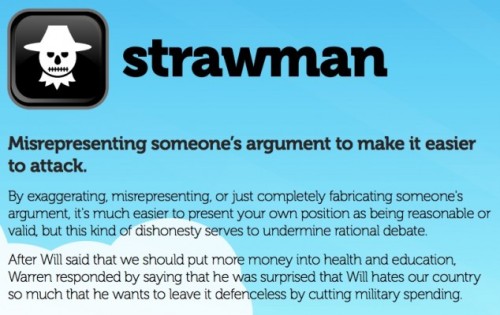
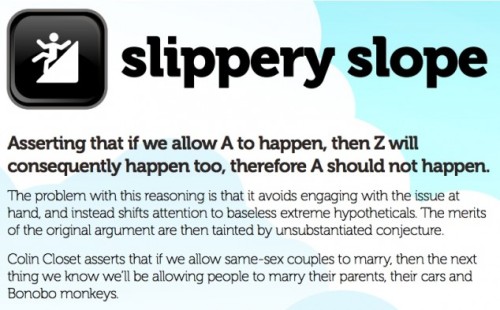
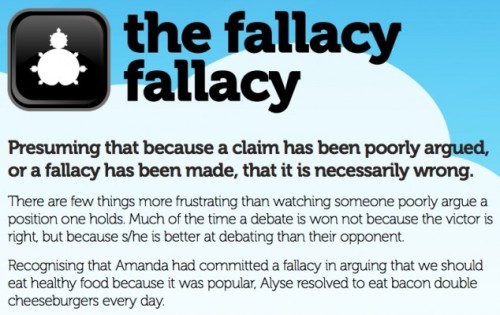
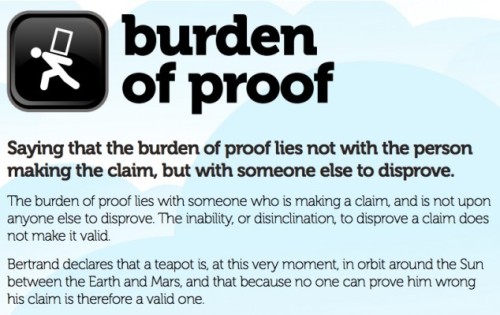

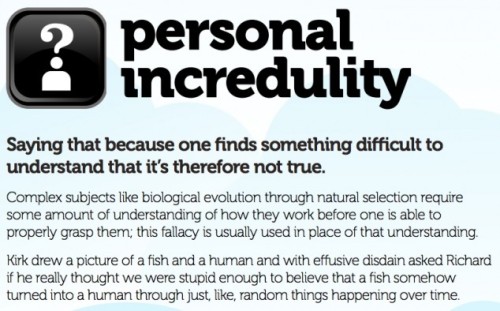
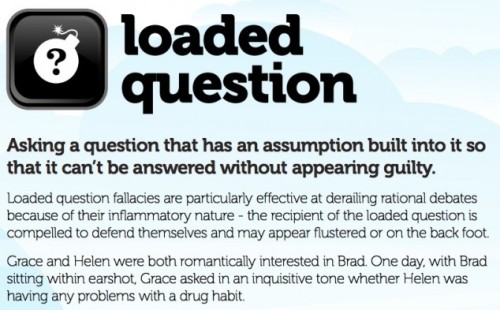
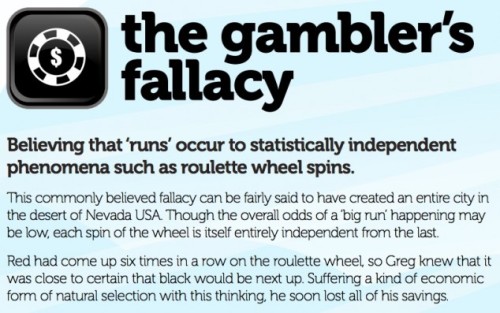

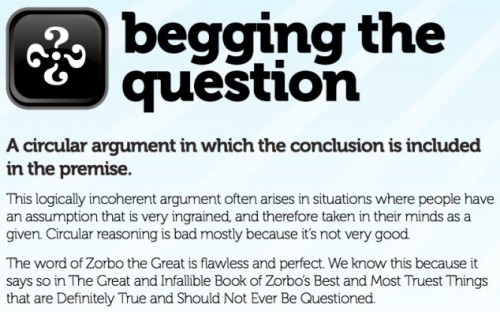
-
 cherrysprite1702 liked this · 2 years ago
cherrysprite1702 liked this · 2 years ago -
 federalchickensoup liked this · 4 years ago
federalchickensoup liked this · 4 years ago -
 whatanoof liked this · 5 years ago
whatanoof liked this · 5 years ago -
 sidehowriting reblogged this · 5 years ago
sidehowriting reblogged this · 5 years ago -
 moriarty-stayin-alive-since-2010 reblogged this · 5 years ago
moriarty-stayin-alive-since-2010 reblogged this · 5 years ago -
 moriarty-stayin-alive-since-2010 liked this · 5 years ago
moriarty-stayin-alive-since-2010 liked this · 5 years ago -
 maladaptivemischief liked this · 5 years ago
maladaptivemischief liked this · 5 years ago -
 mourningbirds1 liked this · 5 years ago
mourningbirds1 liked this · 5 years ago -
 val-the-valiant liked this · 5 years ago
val-the-valiant liked this · 5 years ago -
 eknnke liked this · 5 years ago
eknnke liked this · 5 years ago -
 jedipadawansameaneima reblogged this · 5 years ago
jedipadawansameaneima reblogged this · 5 years ago -
 littlebabyypeach liked this · 5 years ago
littlebabyypeach liked this · 5 years ago -
 violet-hellfire liked this · 5 years ago
violet-hellfire liked this · 5 years ago -
 jedipadawansameaneima liked this · 5 years ago
jedipadawansameaneima liked this · 5 years ago -
 beebeepudding liked this · 5 years ago
beebeepudding liked this · 5 years ago -
 dinsrifle liked this · 5 years ago
dinsrifle liked this · 5 years ago -
 ejacutastic liked this · 5 years ago
ejacutastic liked this · 5 years ago -
 hardcases-homo-homie liked this · 5 years ago
hardcases-homo-homie liked this · 5 years ago -
 theyolobar reblogged this · 5 years ago
theyolobar reblogged this · 5 years ago -
 spiderflos6 liked this · 5 years ago
spiderflos6 liked this · 5 years ago -
 combatfaerie liked this · 5 years ago
combatfaerie liked this · 5 years ago -
 kirammoni liked this · 5 years ago
kirammoni liked this · 5 years ago -
 emdee8907 liked this · 5 years ago
emdee8907 liked this · 5 years ago -
 rowinablx reblogged this · 5 years ago
rowinablx reblogged this · 5 years ago -
 rowinablx liked this · 5 years ago
rowinablx liked this · 5 years ago -
 axelwolf8109 liked this · 5 years ago
axelwolf8109 liked this · 5 years ago -
 princess-sethie-boo reblogged this · 5 years ago
princess-sethie-boo reblogged this · 5 years ago -
 princess-sethie-boo liked this · 5 years ago
princess-sethie-boo liked this · 5 years ago -
 kazthedestroyer liked this · 5 years ago
kazthedestroyer liked this · 5 years ago -
 kaida1912 reblogged this · 5 years ago
kaida1912 reblogged this · 5 years ago -
 flyboyypoe liked this · 5 years ago
flyboyypoe liked this · 5 years ago -
 wickepvmbrella liked this · 5 years ago
wickepvmbrella liked this · 5 years ago -
 babyblossomsblog liked this · 5 years ago
babyblossomsblog liked this · 5 years ago -
 honeysuckleblush liked this · 5 years ago
honeysuckleblush liked this · 5 years ago -
 velvetmel0n liked this · 5 years ago
velvetmel0n liked this · 5 years ago -
 softsp-oken liked this · 5 years ago
softsp-oken liked this · 5 years ago -
 space-nana liked this · 5 years ago
space-nana liked this · 5 years ago -
 astronauticall liked this · 5 years ago
astronauticall liked this · 5 years ago -
 xoxowarner liked this · 5 years ago
xoxowarner liked this · 5 years ago -
 abra-cadaver liked this · 5 years ago
abra-cadaver liked this · 5 years ago -
 bellesque liked this · 5 years ago
bellesque liked this · 5 years ago -
 with-paint liked this · 5 years ago
with-paint liked this · 5 years ago -
 joyfullyinharmony liked this · 5 years ago
joyfullyinharmony liked this · 5 years ago -
 zenadus liked this · 5 years ago
zenadus liked this · 5 years ago -
 sapphicsteel liked this · 5 years ago
sapphicsteel liked this · 5 years ago -
 squidlywiddly87 liked this · 5 years ago
squidlywiddly87 liked this · 5 years ago -
 misslazarus liked this · 5 years ago
misslazarus liked this · 5 years ago -
 caramelcalico liked this · 5 years ago
caramelcalico liked this · 5 years ago -
 bitchin-beskar liked this · 5 years ago
bitchin-beskar liked this · 5 years ago -
 paintyard liked this · 5 years ago
paintyard liked this · 5 years ago